In today’s world, waste initiatives are becoming increasingly important as the impact of waste on the environment is more pronounced than ever. The push towards eco-friendly waste management is a trend and a necessity. Innovative solid waste management solutions are emerging as communities and businesses seek ways to reduce their environmental sustainability footprint. This comprehensive guide will delve into the latest trends, innovations, and strategies in eco-friendly waste management, providing a detailed overview of how we can all contribute to a more sustainable future.
The Importance of Eco-Friendly Waste Management
Hazardous waste is a significant concern in eco-friendly waste management, as traditional waste disposal methods, such as landfilling, contribute significantly to pollution and greenhouse gas emissions. We can reduce these harmful effects by adopting eco-friendly waste management techniques and promoting a healthier planet. Implementing recycling industry practices, waste-to-energy plants, and waste reduction strategies can help minimize waste generation and maximize resource recovery.
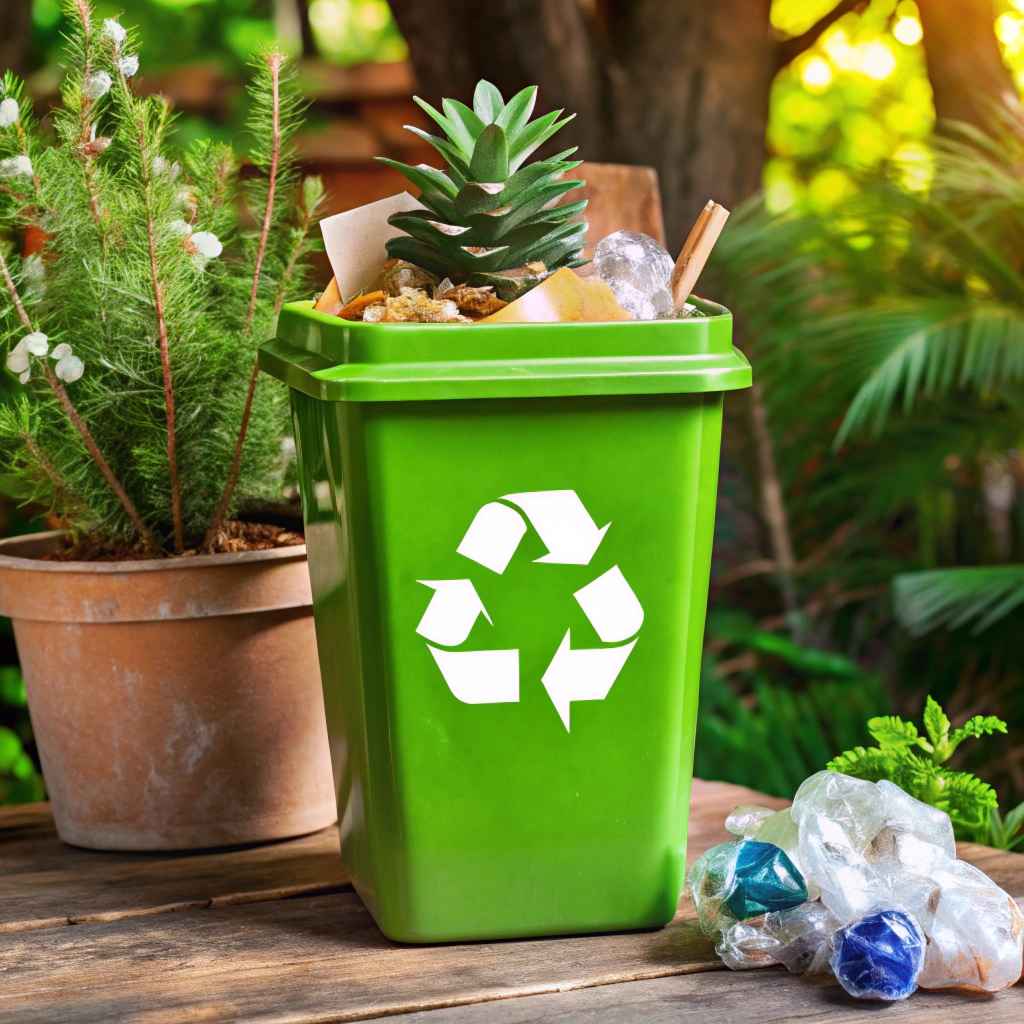
Real-world applications of eco-friendly waste management include implementing recycling methods, composting techniques, and waste segregation. These practices help minimize waste items and maximize resource recovery. Adopting a zero waste approach can significantly reduce waste particles and promote a healthier environment.
Key Statistics
Analyzing Waste Management Trends and Recycling Targets
| Year | US Municipal Solid Waste Generated (Million Tons) | US Recycling Rate (%) | EU Municipal Waste Recycling Target (%) |
|---|---|---|---|
| 2018 | 292.4 | 32.1 | 65 (Target for 2035) |
| 2019 | 294.0 (estimated) | 32.5 (estimated) | 65 (Target for 2035) |
| 2020 | 296.0 (estimated) | 33.0 (estimated) | 65 (Target for 2035) |
| 2021 | 298.0 (estimated) | 33.5 (estimated) | 65 (Target for 2035) |
| 2022 | 300.0 (estimated) | 34.0 (estimated) | 65 (Target for 2035) |
Chart: Waste Management Trends and Recycling Targets
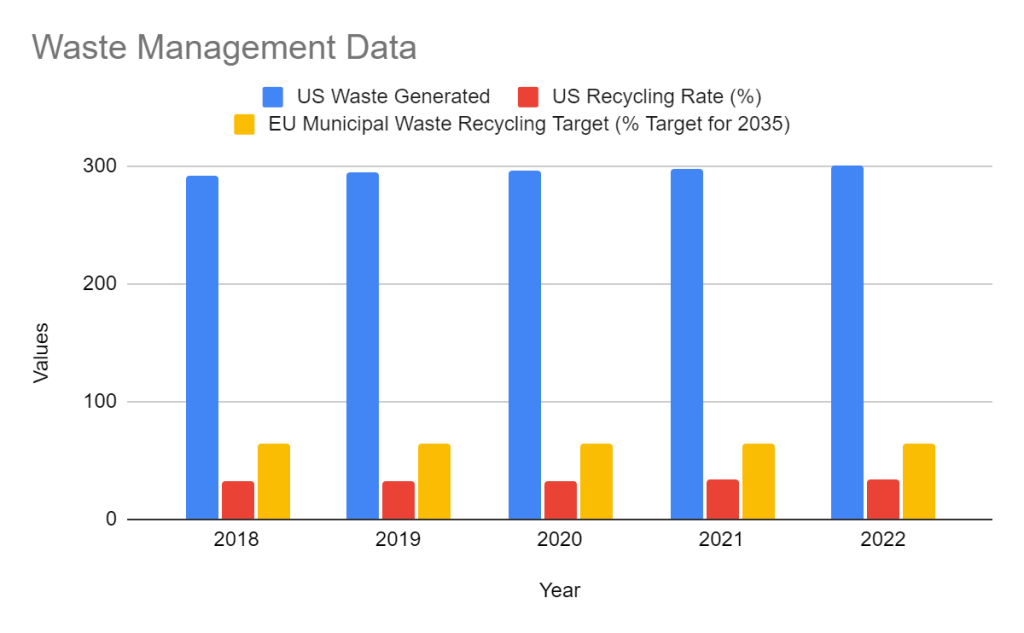
- According to the Environmental Protection Agency (EPA), the United States generated about 292.4 million tons of municipal waste types in 2018, recycling and composting about 94 million tons of this material, equivalent to a 32.1% recycling rate (EPA 2018 Report).
- The European Union has set ambitious waste diversion targets, including recycling 65% of municipal waste by 2035 (European Commission).
Emerging Trends in Eco-Friendly Waste Management
1. Circular Economy
The adoption of sustainable production practices is crucial in reducing industrial waste. Implementing waste collection and waste disposal strategy can help reduce landfill waste and promote waste recycling. Furthermore, using recycled products and waste product can significantly reduce waste generation.
2. New Technologies
Waste-to-energy plants are becoming increasingly popular for converting waste materials into energy. This innovative approach can significantly reduce waste slurry and promote a healthier environment.
The circular economy model is gaining traction as a sustainable alternative to the traditional linear economy. This model emphasizes the importance of keeping resources in use for as long as possible, extracting maximum value from them, and then recovering and regenerating materials at the end of their life cycle, thereby reducing waste—and the need for new raw materials. This approach significantly reduces waste and promotes the use of renewable resources.
Case Study: The Ellen MacArthur Foundation has pioneered in promoting sustainable production practices, which have reduced waste and increased resource efficiency in various industries (Ellen MacArthur Foundation).
2. Sustainable Packaging
The shift towards an eco-friendly way of packaging is a crucial trend in waste management. Companies are now focusing on creating packaging that is biodegradable, recyclable, and made from renewable materials. This reduces the environmental benefits of packaging waste and supports the principles of the circular economy.
Example: Companies like Tetra Pak are leading the way in sustainable packaging by developing cartons made from sustainable materials designed for recycling (Tetra Pak Sustainability Report).
3. Advanced Recycling Technologies
Innovations in recycling technologies make it easier to process and recycle previously considered non-recyclable materials. Advanced sorting systems, chemical recycling, and AI-driven waste management—some solutions are revolutionizing the recycling industry. This approach helps in minimising waste and promotes sustainability goals.
Innovation Highlight: Chemical recycling, which breaks down plastics into their chemical components, allows for recycling mixed and contaminated plastic waste that cannot be processed through traditional mechanical recycling methods, reducing the environmental impact of waste disposal (Plastic Energy).
4. Composting Techniques
Composting is an environmentally friendly way to manage organic waste. Food waste and yard trimmings can be composted and turned into nutrient-rich soil, reducing the need for final disposal in landfills. This approach also supports solid waste reduction and promotes sustainable waste management.
Did You Know? Composting can reduce waste sent to landfills, which in turn reduces hazardous waste category and promotes eco-friendly waste disposal.
5. Waste Reduction Strategies
Effective waste management refers to the proper planning, organization, and execution of waste management strategies. This includes reducing waste generation, segregating waste at source, and adopting sustainable method of waste disposal. This approach helps reduce waste sent to landfills and promotes sustainable waste disposal.
Best Practice: Implementing waste goals and monitoring waste reduction progress can help organizations stay on track with their waste management strategy, reducing their environmental concerns and promoting sustainable environment.
6. Education and Awareness
Raising awareness about the importance of proper waste management and the benefits of reducing trash bins can inspire individuals to adopt environmentally friendly practices in their daily lives, contributing to more sustainable facilities and sustainable principles.
Call to Action: By adopting non-hazardous waste management practices and promoting yard waste reduction, we can work together towards a more sustainable source future.
Composting is a natural process that converts organic waste into nutrient-rich compost. Advanced composting techniques make it easier for individuals and businesses to compost organic waste efficiently, reducing the global waste footprint and providing a valuable resource for agriculture and gardening.
Resource: The Composting Council provides guidelines and resources for effective composting practices, emphasizing the importance of proper waste segregation and organic matter content (US Composting Council).
5. Green Initiatives
Many organizations are implementing sustainable waste-management practices to promote eco-friendly waste management. These initiatives include zero-waste goals, sustainable procurement policies, and community-based recycling programs. These initiatives drive positive environmental change by engaging employees and the community, reducing improper waste disposal and promoting environmental considerations.
Example: Patagonia, the outdoor clothing company, has implemented a robust zero-waste program, focusing on recycling, composting, and reducing overall waste volume (Patagonia Environmental Responsibility).
The Role of Technology in Waste Management Solutions
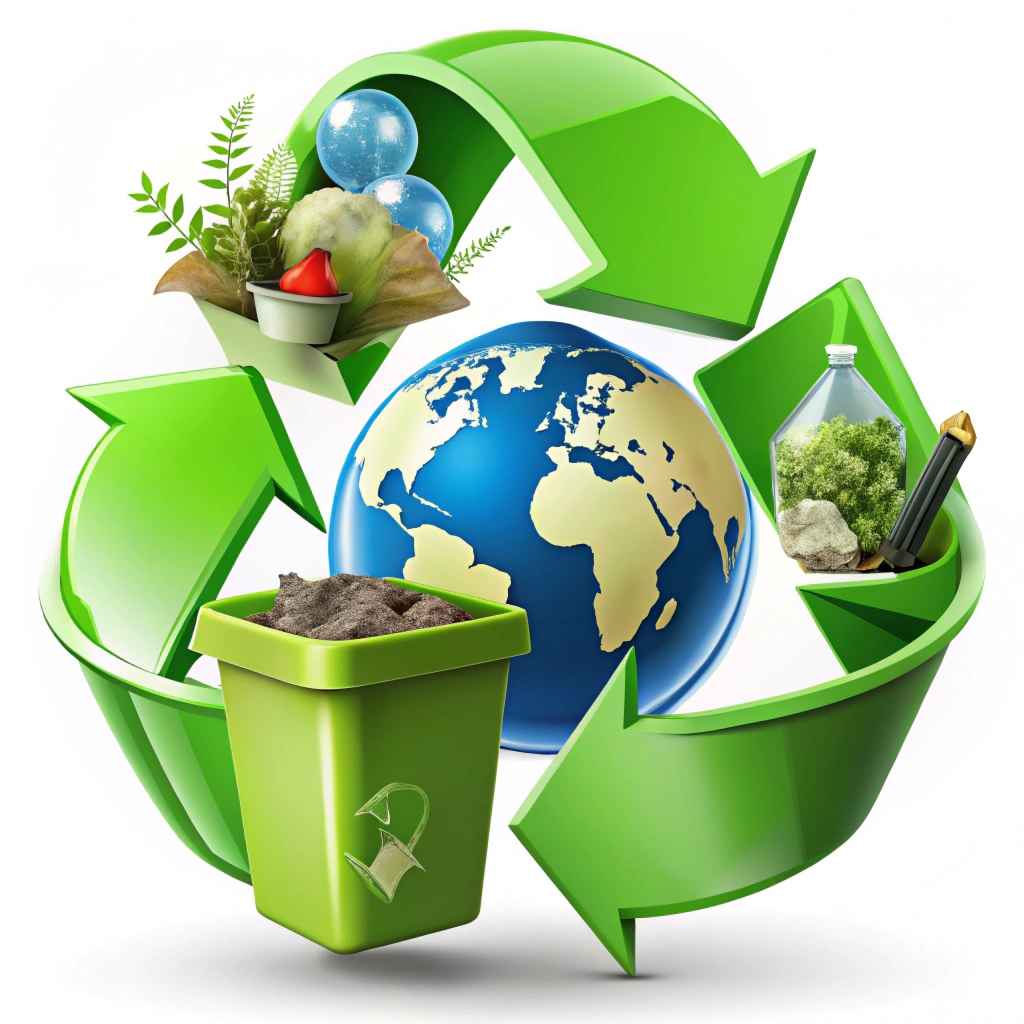
Technology plays a pivotal role in modern waste management solutions. From smart bins that sort waste automatically to apps that help consumers track their waste production, technological advancements are making it easier to manage waste sustainably, reducing municipal solid waste, and promoting eco-friendly methods.
Smart Waste Management Systems
Smart waste management systems use sensors and IoT (Internet of Things) technology to monitor waste levels in real-time, reducing poor waste collection and promoting useful compost. This allows for more efficient waste collection and reduces the need for frequent pickups, saving both time and resources.
Example: Bigbelly Solar offers smart waste and recycling stations that use solar power to compact waste, increasing capacity and reducing the frequency of collections. This reduces landfill disposal and promotes waste-to-energy conversion (Bigbelly Solar).
The Impact of Kitchen Waste
Common kitchen waste, such as food scraps and cleaning products, can be composted and turned into nutrient-rich soil. This reduces greenhouse gas amount and promotes environmental sensitivity.
Waste Disposal Units
Waste disposal units, such as disposers and trash disposal systems, can be replaced with more sustainable alternatives, reducing eco-destructive methods and promoting sustainable one practices.
Composting Food Waste
Direct food waste can be composted and turned into compostable food for agriculture and gardening, reducing food wastes and organic wastes. This promotes a clean and sustainable waste management system.
Municipal Composting
Municipal compost piles can be implemented to compost organic waste, reducing wastewater plants and promoting recycling actions.
Artificial intelligence (AI) and machine learning improve waste sorting and recycling processes, especially for municipal solid waste (MSW). These technologies can identify and separate different types of waste with high accuracy, reducing contamination and increasing recycling rates.
Innovation Highlight: AMP Robotics uses AI-powered robots to sort recyclable materials from waste streams, significantly improving the efficiency and accuracy of recycling facilities (AMP Robotics). This is particularly important for managing electronic waste, which requires special handling and disposal.
Waste Tracking Apps
Apps that help consumers and businesses track waste production are becoming increasingly popular. These apps provide insights into waste generation patterns and offer tips for reducing common kitchen waste and recycling more effectively.
Resource: The Recycle Coach app helps users understand local recycling rules and track their recycling habits, making it easier to stay informed and reduce waste, especially by promoting responsible waste management practices (Recycle Coach).
Community Engagement and Education
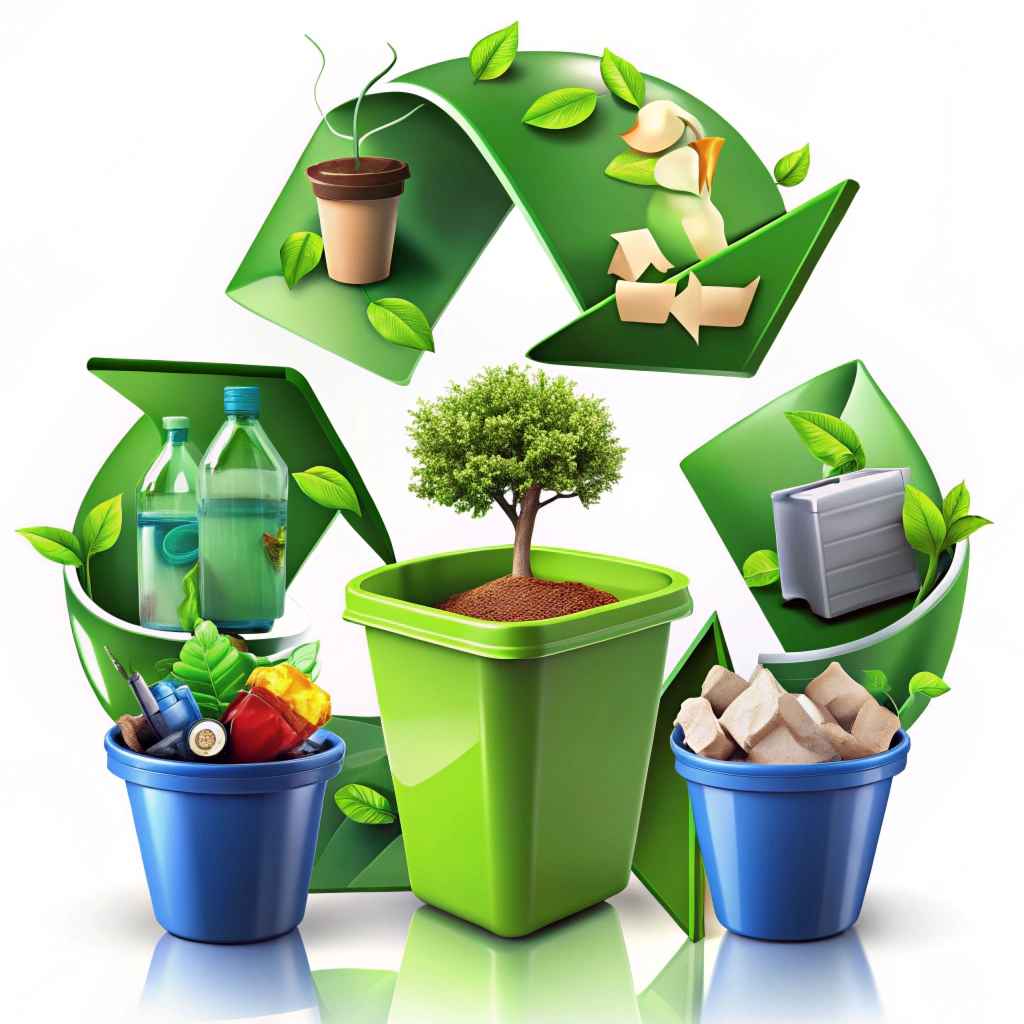
Community engagement is vital for the success of any eco-friendly waste management initiative. Educating the public about waste reduction and providing resources for sustainable societies can drive significant environmental change.
Educational Campaigns
Educational campaigns can raise awareness about the environmental impacts of waste disposal and promote sustainable practices. These campaigns can be conducted through various channels, including social media, local events, and school programs, highlighting the importance of water sources conservation.
Example: The Keep America Beautiful campaign educates the public about litter prevention, recycling, and beautification efforts, emphasizing the need for universal waste collection practices (Keep America Beautiful).
Community-Based Programs
Community-based recycling and composting programs can engage residents and encourage participation in eco-friendly waste management practices, reducing capita waste production. These programs often provide resources such as recycling bins, composting workshops, and waste reduction tips, promoting effective waste disposal habits.
Additionally, these programs can help reduce hazardous waste disposal, conserve valuable resources, and minimize degradation of the environment. By adopting eco-friendly waste management practices, we can reduce household waste and promote sustainability plans. Furthermore, proper garbage disposal and recycled cans can significantly reduce environmental consequences. By understanding environmental characteristics and environmental performance, we can optimize efficient resource use and reduce waste disposal units.
Resource: Local governments and organizations can provide resources and support for community-based programs, helping to develop a culture of waste disposal habits that prioritize sustainability and environmental responsibility.
Case Study: San Francisco’s Zero Waste program aims to achieve zero waste by 2020 through comprehensive recycling and composting initiatives, community education, and strong policy measures towards nature conservation (SF Environment).
Incentive Programs
Incentive programs can motivate individuals and businesses to adopt eco-friendly cotton bags and other sustainable practices. These programs may offer rewards such as discounts, cash incentives, or recognition for achieving waste-reduction goals.
Example: The Recyclebank program rewards participants with points that can be redeemed for discounts and deals at local businesses, encouraging more people to recycle and adopt visionary zero-waste strategies (Recyclebank).
Frequently Asked Questions (FAQs)
Q1: What are the benefits of eco-friendly waste management?
A1: Eco-friendly waste management reduces pollution, conserves natural resources, and minimizes greenhouse gas emissions. It also promotes sustainable business practices and supports the circular economy.
Q2: How can individuals contribute to eco-friendly waste management?
A2: Individuals can contribute by reducing landfilled trash, recycling, composting organic waste, and choosing eco friendly waste practices. Participating in community programs and supporting green initiatives also makes a difference.
Q3: What are the consequences of inadequate waste management?
A3: Inadequate waste management can result in oxygen-deprived landfills, hazardous waste sites, and contribute to the global garbage problem. It also hinders our ability to adopt waste-management industries best practices.
Q4: How can municipalities improve waste management?
A4: Municipalities can improve waste management by investing in upstream waste management infrastructure, municipal waste facilities, and implementing waste processes that promote plastic waste recycling and reduce contamination. They can also employ waste collection vehicles with low emissions.
Q5: What are the environmental responsibilities of businesses and individuals?
A5: Businesses and individuals have environmental responsibilities to adopt sustainable option and minimize their ecological footprint. This includes reducing waste, conserving natural resources, and promoting global waste production reduction.
Q5: What role do businesses play in eco-friendly waste management?
A5: Businesses play a crucial role by implementing sustainable practices, reducing raw material consumption—and waste generation, and supporting the development of eco-friendly products. They can also engage in green initiatives and educate employees about delicate ecosystems and minimizing landfill contribution. By doing so, they can make progress towards carbon neutrality and reduce solvent waste.
Conclusion
The future of eco-friendly waste management is filled with promising trends and innovations. Garbage disposers can effectively manage small waste loads, reducing the likelihood of trash heaps forming. However, addressing the challenging waste stream and considering fuel sources that minimize environmental harm is essential. Containers can be designed to encourage responsible waste disposal and another—so downstream waste can be reduced through efficient waste management systems.
Furthermore, it’s crucial to recognize the impact of wastes—and human activities on the environment and work towards minimizing environmental facts. We must prioritize the protection of our precious environment and address environmental issues—as a collective responsibility. By adopting ecological treatments and maintaining water drains, we can minimize regular trash and promote sustainable waste management practices.
A well-designed, effective wastewater infrastructure is also essential for managing inorganic wastes and reducing the environmental impact of swedish waste and large waste. Businesses and individuals can work together to conserve resources, reduce direct food waste, and promote utilizing garbage disposals for commercial waste. By doing so, we can give new life—and reduce pollution, ensuring a sustainable future where waste is managed responsibly, and resources are conserved for generations to come. Finally, garbage disposals diverts waste from disposal output, reducing the risk of challenging wastes and promoting a cleaner environment.
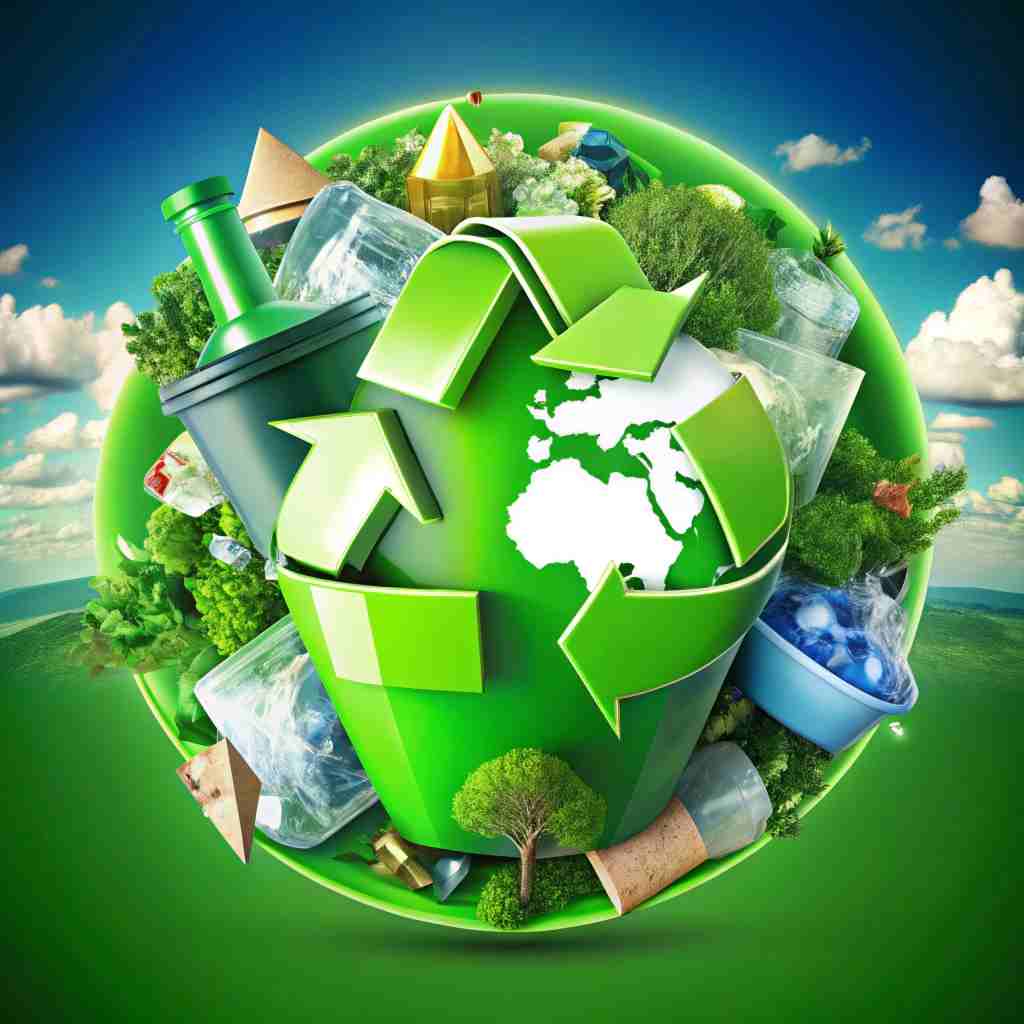
Leave a Reply